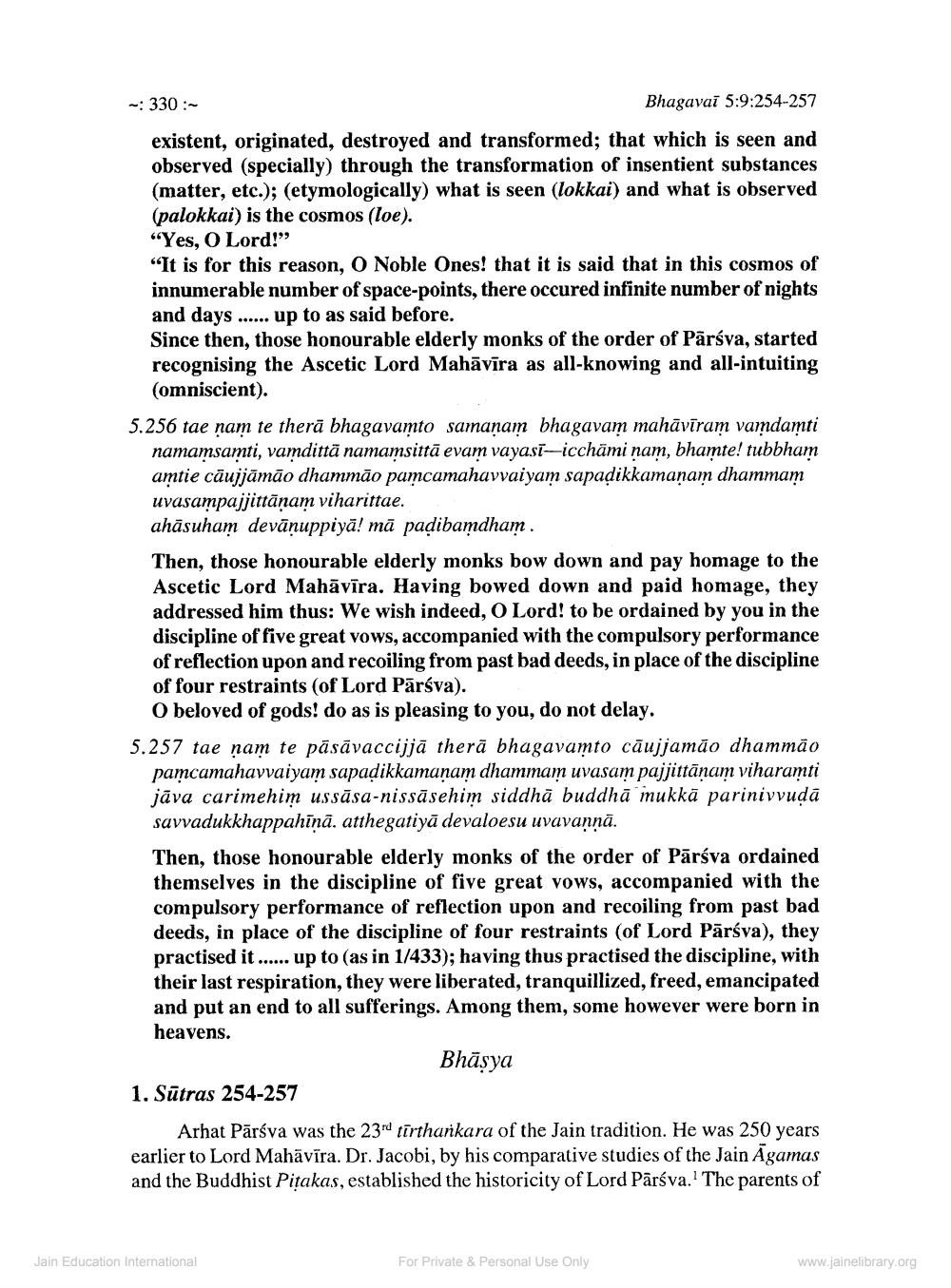________________
~: 330:~
Bhagavai 5:9:254-257
existent, originated, destroyed and transformed; that which is seen and observed (specially) through the transformation of insentient substances (matter, etc.); (etymologically) what is seen (lokkai) and what is observed (palokkai) is the cosmos (loe).
"Yes, O Lord!"
"It is for this reason, O Noble Ones! that it is said that in this cosmos of innumerable number of space-points, there occured infinite number of nights and days...... up to as said before.
Since then, those honourable elderly monks of the order of Pārsva, started recognising the Ascetic Lord Mahāvīra as all-knowing and all-intuiting (omniscient).
5.256 tae nam te thera bhagavamto samanam bhagavam mahāvīram vamdamti namamsamti, vamdittä namamsittä evam vayasi-icchami nam, bhamte! tubbham amtie căujjāmão dhammão pamcamahavvaiyam sapaḍikkamaṇam dhammam uvasampajjittāṇam viharittae.
ahāsuham devāṇuppiyā! mā paḍibamdham.
Then, those honourable elderly monks bow down and pay homage to the Ascetic Lord Mahāvīra. Having bowed down and paid homage, they addressed him thus: We wish indeed, O Lord! to be ordained by you in the discipline of five great vows, accompanied with the compulsory performance of reflection upon and recoiling from past bad deeds, in place of the discipline of four restraints (of Lord Parsva).
O beloved of gods! do as is pleasing to you, do not delay.
5.257 tae nam te pasāvaccijja thera bhagavamto caujjamão dhammão pamcamahavvaiyam sapaḍikkamaṇam dhammam uvasam pajjittäṇam viharamti java carimehim ussäsa-nissäsehim siddha buddha mukkä parinivvuda savvadukkhappahīņā. atthegatiyā devaloesu uvavanṇā.
Then, those honourable elderly monks of the order of Pärśva ordained themselves in the discipline of five great vows, accompanied with the compulsory performance of reflection upon and recoiling from past bad deeds, in place of the discipline of four restraints (of Lord Parsva), they practised it...... up to (as in 1/433); having thus practised the discipline, with their last respiration, they were liberated, tranquillized, freed, emancipated and put an end to all sufferings. Among them, some however were born in heavens.
Bhāṣya
1. Sutras 254-257
Arhat Pārsva was the 23rd tirthankara of the Jain tradition. He was 250 years earlier to Lord Mahävira. Dr. Jacobi, by his comparative studies of the Jain Agamas and the Buddhist Pitakas, established the historicity of Lord Parsva.' The parents of
Jain Education International
For Private & Personal Use Only
www.jainelibrary.org




